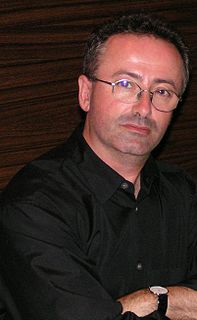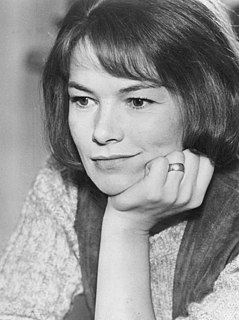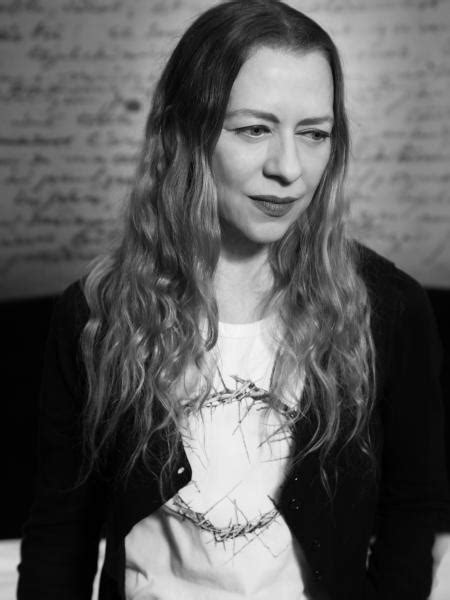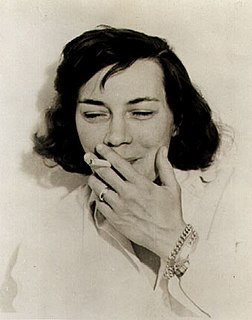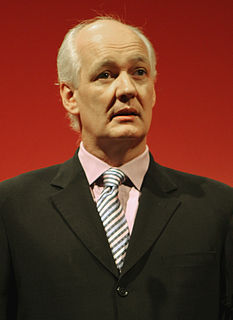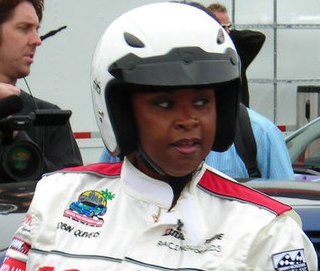A Quote by Andrew Denton
Comedy is a very personal thing, as you would know if you've ever told the same joke to two people and had one of them laugh their head off and the other one look at you as though you were a completely cretin.
Related Quotes
I can make 10 jackets of the same colour, same two pockets and same length, that will look like 10 completely different jackets when you put them on. It's about the way they are cut - it makes them look and feel completely different and move differently, and that's a never-ending study. People who wear my clothes will know exactly what I mean.
They were not friends. They didn't know each other. It struck Tom like a horrible truth, true for all time, true for the people he had known in the past and for those he would know in the future: each had stood and would stand before him, and he would know time and time again that he would never know them, and the worst was that there would always be the illusion, for a time, that he did know them, and that he and they were completely in harmony and alike. For an instant the wordless shock of his realization seemed more than he could bear.
I keep on repeating something told to me by an American psychologist: "When you are making a joke about someone and you are the only one to laugh, it is not a joke. It is a joke only for yourself." If people are making a joke they have the right to laugh at me but I will ignore them. Ignoring doesn't mean that you don't understand. You understand it so much that you don't want to react.
I have become a giant fan of the testing process, especially with a comedy. I mean, they tell you what's funny. It's almost tailor-made for people who shoot the way we shoot, trying a million different options and versions of things. Because the audience doesn't laugh at a joke, we put in another joke. If they don't laugh at the next joke, we put in another joke. You just keep doing them and you can get the movie to the point where every joke is funny, if you have enough options in the can.
Over the years, people have often said to us that they were going through some horrible thing in their life - maybe the worst thing that had ever happened, or that they could think would ever happen - and that, somehow, in that state, we made them laugh. And I was like, 'That's a wonderful calling.'
The first purpose of comedy is to make people laugh. Anything deeper is a bonus. Some comedians want to make people laugh and make them think about socially relevant issues, but comedy, by the very nature of the word, is to make people laugh. If people aren't laughing, it's not comedy. It's as simple as that.
When I was working with Barry Sonnenfeld, I'd watch him set up a shot and talk to him about what he was seeing and what it was to shoot comedy. He told me that a lot of times with comedy, it's not just about getting the joke, but getting a reaction to the joke. That's the laugh - it's somebody's else's reaction to the joke.
I laugh a lot in horror films. If I'm scared in a horror film, I try to think about what's scaring me... particularly, if it's a bad movie, but something they're doing still works. It's the same way I look at comedy. I've always had an intellectual view of comedy, and what makes people laugh, and how does it work.
You still think I've gone cracked in the head," Ben said, amused. "Listen, if tomorrow we pulled into Biren and someone told you there were shamble-men in the woods, would you believe them?" My father shook his head. "What if two people told you?" Another shake. Ben leaned forward on his stump. "What if a dozen people told you, with perfect earnestness, that shamble-men were out in the fields, eating-" "Of course I wouldn't believe them," my father said, irritated. "It's ridiculous." "Of course it is," Ben agreed, raising a finger. "But the real question is this: Would you go into the woods?
